Eric Clapton, a white, working class boy from a quaint Surrey village, had his life transformed when he happened upon the music of the Mississippi Delta.
That encounter with the blues on the BBC’s Home Service set him on a course that would end with him being one of the most feted rock stars in an era when rock stars ruled supreme.
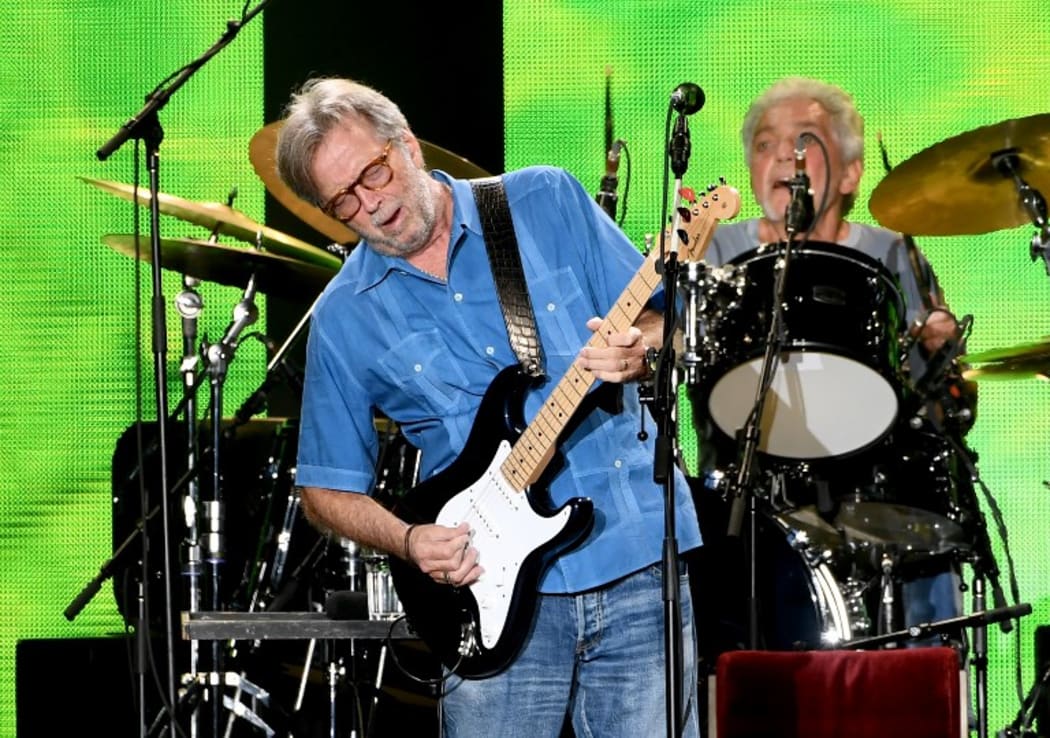
Eric Clapton performs in 2017 in California. Photo: AFP / FILE
Clapton emerged as a guitar hero in the 1960s playing with The Yardbirds, John Mayall’s Blues Breakers, Cream and Blind Faith before going on to massive success as a solo artist.
Celebrated music biographer Philip Norman has written a new book about Clapton’s life; Slowhand: The Life and Music of Eric Clapton in which he examines Clapton’s troubled childhood, decades of drug and alcohol abuse, his complicated love life, car crashes and the death of his son Connor.
The song that so electrified the young Clapton in the 1950s was Sonny Terry and Brownie McGhee’s ‘Whoopin’ the Blues’.
“BBC Radio didn’t really realise what kind of music this was, they played it on a children’s request programme and Eric happened to hear it.
“And from then on it became a sort of refuge for him for an insecure childhood where he’d been abandoned by his mother and brought up by his grandmother pretending to be his mother.
“That left him very rootless and very unsure of where he was. The blues really told him who he was and what his path in life would be.”
The blues became an obsession for Clapton and soon he was picking out riffs on his own guitar trying to emulate his American heroes Robert Johnson, Muddy Waters, Freddie King and Hubert Sumlin.
The blues in the late ‘50s and early ‘60s was an obscure music loved by a small band of devotees.
“Most British guitar super heroes of the ‘60s came to it through a homespun folk music called skiffle and a lot through Buddy Holly, but with Eric it really was through the blues that he heard on BBC radio.”
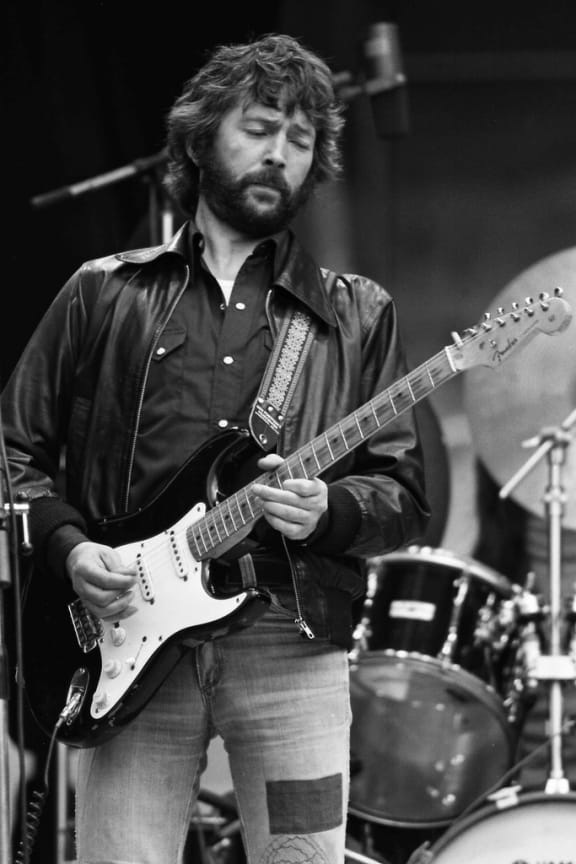
ERIC CLAPTON Photo: Public Domain
Clapton became “an absolutely pivotal figure in a most fascinating moment in popular music”.
That made him an appealing subject for Norman to add to his distinguished back-catalogue of rock biographies, which include The Beatles, John Lennon, Paul McCartney, Elton John and The Rolling Stones.
“I realised he was the last one of the top echelon really whose story cuts across The Beatles and the Stones, because he was the only person - an outsider - ever unofficially to be a member of the both Beatles and the Stones as well as George Harrison’s best friend - even after taking George Harrison’s wife.”
Clapton’s playing had virtuosity, but more importantly was authentic, Norman says.
“He didn’t really meet any of the great blues performers for a long time. In the end almost all of them, who he had so much idolised and tried to copy, turned round and said ‘this white kid from Surrey, the most sedate English county in the south, has got something that we people where the blues is supposed to come from, we don’t have'.
“For years he was like Wyatt Earp, people were always trying to outdraw him on the guitar – nobody could except Jimi Hendrix.
“When he was up against Jimi Hendrix by accident one night he was so completely thrown by Jimi Hendrix’ talents he walked off the stage.”
Despite a reserved personality, Clapton poured emotion into his guitar playing.
“He was not an externally emotional person, he didn’t seem to show much feeling at all but it all went into the guitar.
“He stands there in a pair of jeans as emotionlessly as if he’s rinsing out a pair of socks and yet these amazing sounds come from this piece of electrified wood.”
By the time Clapton was in his late 20s he was in super group Cream, earning millions and hanging with fellow late '60s rock royalty.
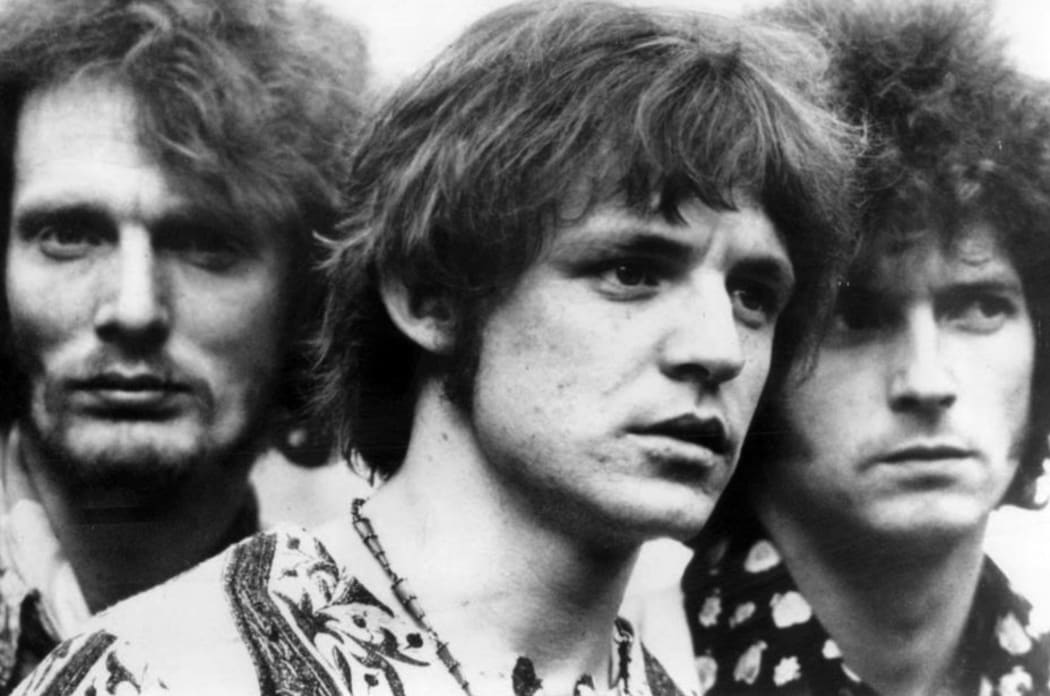
Ginger Baker, Jack Bruce and Eric Clapton in Cream. Photo: Public Domain
Like many of his peers, he developed a taste for hard drugs and drink, but unlike others somehow avoided checking out early.
“He survived epic addictions: firstly to heroin, that was relatively easy to get rid of but then two decades really of alcoholism, really enough to kill many, many people. He sort of somehow came through by having the right constitution and by having amazing luck.
“But at the same time being hugely depressed about himself, often thinking he was the most unfortunate morsel on the face of the earth.”
Clapton’s childhood haunted him into his adult life. He was a spoilt child who transitioned into a spoilt rock star and so never had to grow up, Norman says.
“It was very much the same as John Lennon’s childhood. John was given away essentially by his mother as well, to her sister John’s Aunt Mimi, with Eric it was his grandma he had to pretend was his mother.
“And both Aunt Mimi with John, and Rose with Eric, tried to compensate by spoiling their charges dreadfully.”
Despite being pampered children, both Lennon and Clapton felt there was a void - the absence of a mother - in their lives, Norman says.
“In Eric’s case he somehow managed to carry this on to adult life. Everybody felt they had to make up for this void in Eric and look after him and protect him from life’s realities - he never had to do anything for himself he was infantilised really until middle age.”
So disconnected from life’s realities was Clapton that he sent a roadie to take his driving test. On another occasion, a roadie took a blood test on his behalf.
And throughout the '70s and '80s - during which time Clapton was invariably high, drunk or both - he dodged numerous metaphorical bullets.
“Certainly, he did have amazing luck. He managed to avoid most of the things that not only either kill young rock stars or ruin them; he never had a terribly expensive law suit with his management or with a record company, he never had a dreadful divorce, he never had embarrassing children.”
Norman says Clapton’s ability to stay out of the headlines and out of the limelight generally when he wasn’t on stage was “extraordinary”.
“When I came to look at his life there is one moment of public bad behaviour which one cannot excuse: it was in the '70s at the very height of his alcoholic haze, he started a racist rant from stage in Birmingham. This was a city where the Asian immigrant population was enormous, it was extreme, the worst place to do that.
“But you have to say it is the only time really he has behaved badly.”
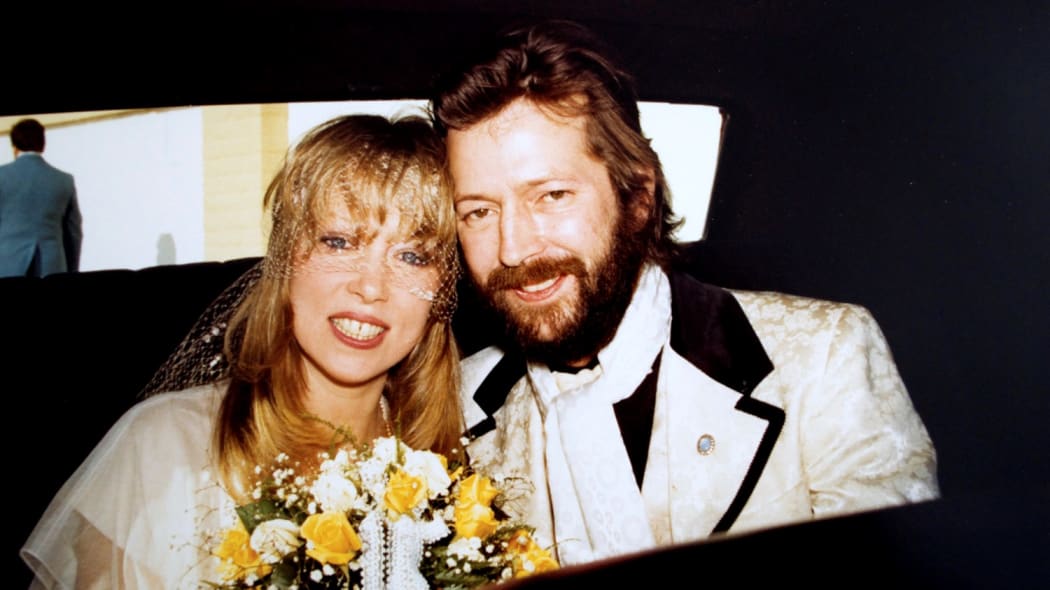
Pattie Boyd and Eric Clapton Photo: Supplied
Clapton’s pursuit of George Harrison’s wife Pattie Boyd in the early 1970s would doubtless have caused a tabloid sensation these days, but back then it was a more low key affair – despite him writing one of his most successful songs ‘Layla’ about his unrequited love for her.
“He has lived a life of amazing, miraculous privacy for all these decades. In the case of Pattie, she didn’t want to leave George Harrison, George was Eric’s best friend, Pattie wanted to make the marriage work, but it all went wrong with George.”
Norman spoke extensively to Pattie Boyd when he was researching the book. She told him life with Harrison became unbearable, so she turned to his fellow guitarist and best friend Clapton.
“What went wrong was when he [Harrison] learnt to meditate - that’s supposed to make people nicer, but it made George much more unpleasant - and eventually George started to have an affair with Ringo Starr’s wife under Pattie’s roof in the house when Pattie was there and she’d had enough.”
Clapton had finally won the woman of his dreams – but the dream was transitory. Boyd and Clapton got together in 1974 and married in 1979 but his drinking and womanising continued unabated.
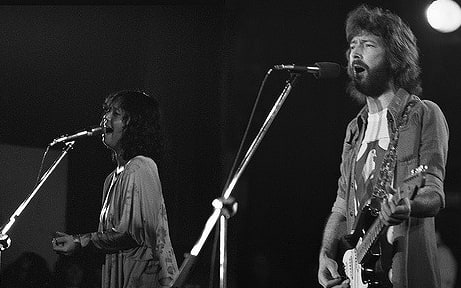
Eric Clapton on the road circa 1975 Photo: CC-BY-SA
“At that point Eric had pursued her without any success for years and written ‘Layla’. Finally when George has the affair with Ringo’s wife she says to Eric ‘all right, you win, I’ll join you on tour’.
"At that moment he didn’t want her any more … it was the pursuit, it was the unattainable, the attraction of the unattainable that kept him going in his ardour all those years. As soon as she said ‘all right, we can be together’ he lost interest.
“He started cheating on her on his and Pattie’s honeymoon; she was allowed to join him for a few days on tour then he said she had to go back to England and the car that took her to the airport met a girlfriend at the airport and brought her back to Eric. That’s how quickly the shine wore off the marriage.”
While Clapton's career flourished in the 1970s, but by the ‘80s his drinking was out of control. He sought treatment early in that decade, but soon fell off the wagon.
It took a terrible personal tragedy to straighten him out, Norman says: the death of his son.
Clapton's brief affair with Italian actress Lori Del Santo had resulted in the birth of Connor, and although the affair was short-lived, Clapton became involved in the boy's life.
However, Connor died in 1991 when he fell from the window of a skyscraper in Manhattan.
“The awful moment when his four-year-old son was killed in New York by falling from a 53-storey window, that was when he had to face up to being an adult at a very late age … but he did face up to it,” Norman says.
In the end, Norman says, Clapton is a complex man, but there is redemption in his story.
“It made Eric face reality for the first time in his life really and part of the reality was getting sober, he felt he had to do it from that point because otherwise it would betray the memory of his son.
"So he did succeed in staying sober from that day until now and also becoming very much a figure in Alcoholics Anonymous and help counselling other people.
“Eric doesn’t always come across as being very nice, I have to say - particularly the way he treats Pattie - but the story does have this redemption at the end and you do have to admire him.”
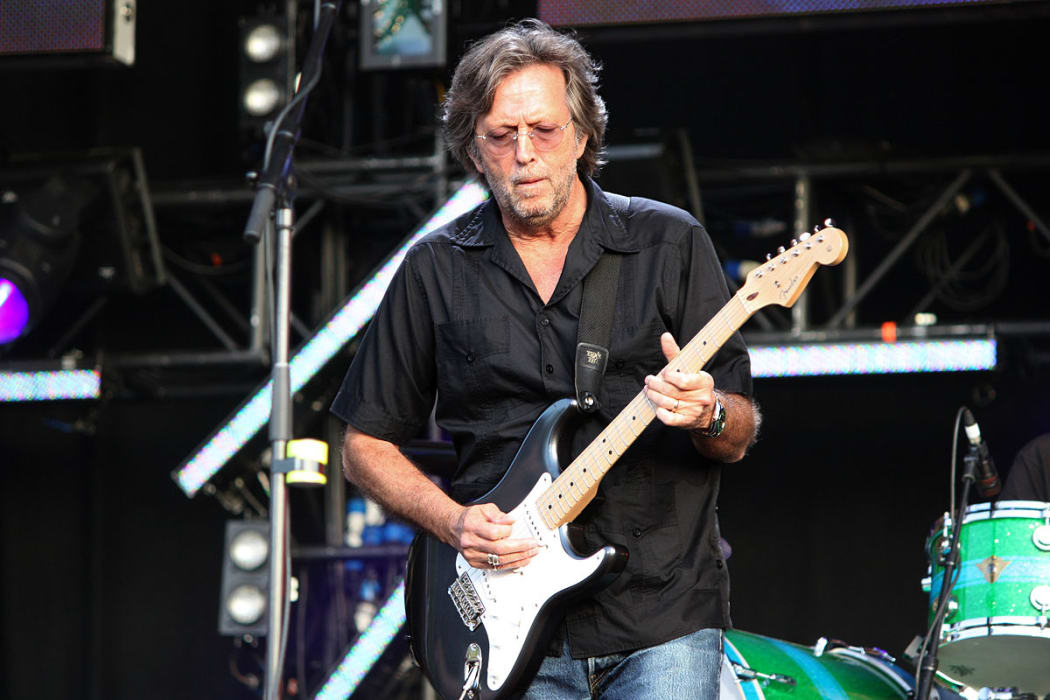
Eric Clapton playing live at the Hard Rock Calling concert on June 28, 2008 in Hyde Park, London Photo: https://commons.wikimedia.org/wiki/File:Eric_Clapton_1.jpg

